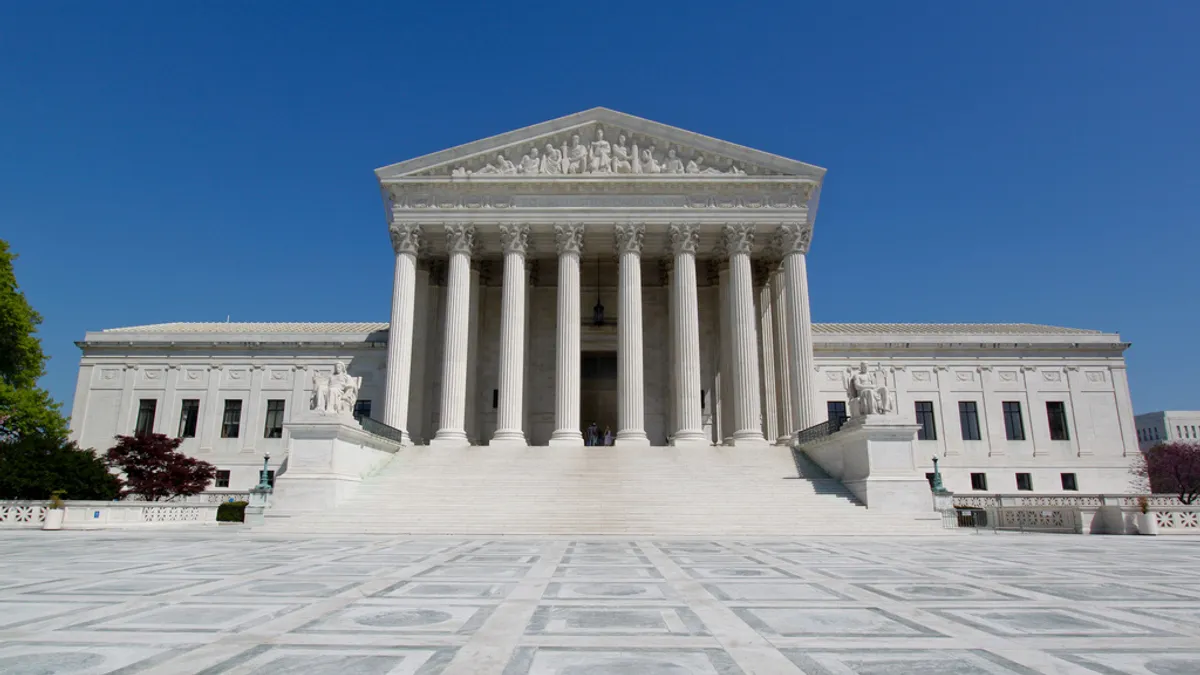Dive Brief:
- Employees who only complain internally about securities law violations are not protected from retaliation, the U.S. Supreme Court held unanimously Feb. 21, reversing an 9th U.S. Circuit Court of Appeals ruling.
- The 9th Circuit had determined that that workers could qualify as “whistleblowers” under the Dodd-Frank Wall Street Reform and Consumer Protection Act, even if they never submit their complaints to the U.S. Securities and Exchange Commission (SEC) as the law discusses.
- The High Court ruling (Digital Realty Trust, Inc. v. Somers, No. 16-1276) resolves a split among the federal circuit courts of appeal.
Dive Insight:
On one hand, the ruling seems like a win for employers. Many in the business community hoped the High Court would rule this way. The U.S. Chamber of Commerce, for example, argued in a statement submitted to the court, that a finding otherwise could drastically expand the number of employees eligible to pursue the law’s remedies and the time period in which they can sue for retaliation.
Others, however, say there will be some undesirable consequences for businesses. “The decision undoubtedly will discourage employees from reporting their concerns through internal compliance systems and instead drive those employees to go first to the SEC so they will be covered under the law’s anti-retaliation provisions," Erika Kelton, an attorney who represents whistleblowers and partner with Phillips & Cohen LLP, said in a statement.
Another partner at the firm, Sean McKessy, agreed. "[T]his is a case where Corporate America should have been careful about what it wished for," he said. It’s a bad day for whistleblowers, but it's also a bad day for corporate America, he said. "[N]ow individuals who suspect a securities law violation would be well advised to report directly to the SEC lest they forfeit fundamental anti-retaliation protections.”













